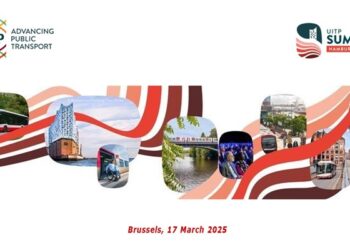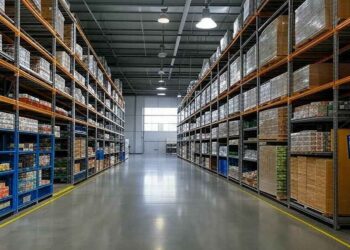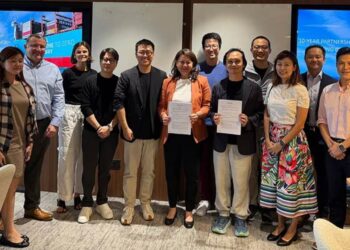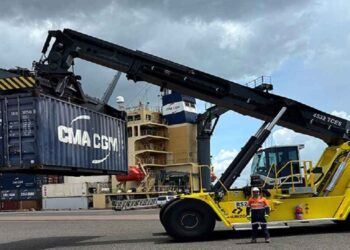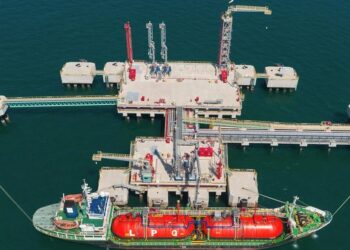Bearing exits stealth mode and launches its AI-driven operations optimization platform, which provides a wide range of actionable insights to shipping companies, leading to improved efficiency, safety and reduced greenhouse gas emissions. Bearing’s platform is powered by highly accurate ship performance models built on real-world data, allowing it to predict fuel consumption, speed, and other performance factors much more accurately than existing solutions on the market. (e.g., Bearing’s typical prediction accuracy for fuel consumption is over 98% per voyage, compared to a typical existing accuracy of 80%).
The trillion-dollar maritime shipping industry moves 90% of the goods people interact with on a daily basis. However, the industry still struggles with significant inefficiencies and has traditionally been slow to adopt new technologies. The industry is now facing additional challenges on several fronts, from new environmental regulations to rapid shifts in global trade. To address these industry challenges, shippers are looking for new ways to streamline their operations. By working closely with many of the top-10 global shippers, Bearing has developed solutions that help shippers of all types (from tankers to containerships) improve their operations and, ultimately, their profit margins.
Based in Silicon Valley, Bearing’s team has deep roots in artificial intelligence (AI) and scaling large-scale data-driven products. Bringing this expertise to the shipping industry, Bearing has developed solutions that outperform the industry’s traditional solutions that are manually intensive and, therefore, expensive.
Core to Bearing’s technology is a platform that ingests data from various sources, including ship sensors, satellite positioning and weather data. Bearing combines this data with deep learning technologies to build hyper accurate models that predict vessel performance in a wide range of operating conditions, from storms to calm water. These models serve as the foundation for a range of products, including:
Smart Routing Engine: Automatically analyzes all potential routes for a given voyage and recommends the optimal route and speed profile for fuel efficiency, market opportunities and safety. Notably, the Smart Routing Engine continuously evaluates all possible route options and automatically adapts to changing weather conditions in real-time. Bearing built the Smart Routing Engine to integrate into existing workflows smoothly, so captains and operators can quickly receive and react to recommendations. The Smart Routing Engine also accurately projects the real-time profitability of a given voyage, removing much of the guesswork that exists in the industry today.
Bearing’s Smart Routing Engine is already deployed with its initial partner, MOL, one of Japan’s largest shipping companies. MOL collaborated with Bearing in the initial testing and launch of the Smart Routing Engine because they recognized Bearing’s deep AI expertise and background in building technology products. “MOL, at its highest organizational levels, continuously monitors the condition of our fleet to ensure optimum operational efficiency and prudent, safe navigation by combining the technologies of Bearing as well as other existing and new solutions,” said President of MOL (Americas), Katsumi Nagata.
Performance Analysis Dashboard: Allows operators to see accurate trends in efficiency for their entire fleet. The dashboard proactively highlights actions that operators can take to improve fleet efficiency and allows operators to calculate the ROI for different actions, such as hull cleaning. Traditionally, measuring vessel performance against an objective baseline has been challenging to do, as vessel performance can vary significantly even on a single voyage due to factors like weather. Bearing’s technology allows operators to understand their fleet in a clear, quantitative way, thereby empowering them to make the right decisions.
“K” LINE, one of Japan’s leading shipping companies, collaborated closely with Bearing as a pioneer on the development and testing of the Performance Analysis Dashboard. “As a result of verifying the performance analysis by utilizing Bearing’s technology, “K” LINE confirmed a much higher level of data accuracy compared with the existing performance analysis tool. Therefore, “K” LINE is going to adopt Bearing’s Performance Analyzing Tool on 300+ vessels,” said General Manager of “K” LINE’s Advanced Technology Group, Shingo Kameyama. “High accuracy of ship’s performance analysis is essential for all safety and energy-saving measures in ship operation. Bearing’s technology contributes to our safe, economical operation and greenhouse gas reduction, which is one of the most significant maritime industries’ challenges.”
Ship Profile API: Enables shipping companies and other service providers to tap into Bearing’s deep learning models via an easy-to-use API to power their own tools. Bearing has partnered with ZeroNorth, a spin-off of Maersk Tankers, to develop and launch this API. Bearing’s API is currently helping to power ZeroNorth’s Optimise platform, allowing tramp shippers to optimize their operations and improve overall profitability.
Founders
Bearing’s cofounders are CEO Dylan Keil and Chief Engineer David Liu. Dylan has deep expertise in building products that leverage real-world sensor data. Before founding Bearing, Dylan was the CEO and Cofounder of Chronos, a startup that developed a leading contextual-awareness engine for mobile-devices. David has extensive experience building scalable, AI-enabled products. David spent over a decade at Intel, leading a wide variety of engineering efforts, focusing on Machine Learning.
About Bearing:
Based in Palo, Alto, CA, Bearing brings operational efficiencies to the maritime shipping industry. Through the use of artificial intelligence (AI), Bearing aggregates and analyzes data from multiple sources to provide actionable insights for fuel efficiency, optimal routing and vessel performance. Backed by AI experts and partnerships with global shippers, Bearing is helping its customers increase their profit margins and reduce greenhouse gas emissions.





















